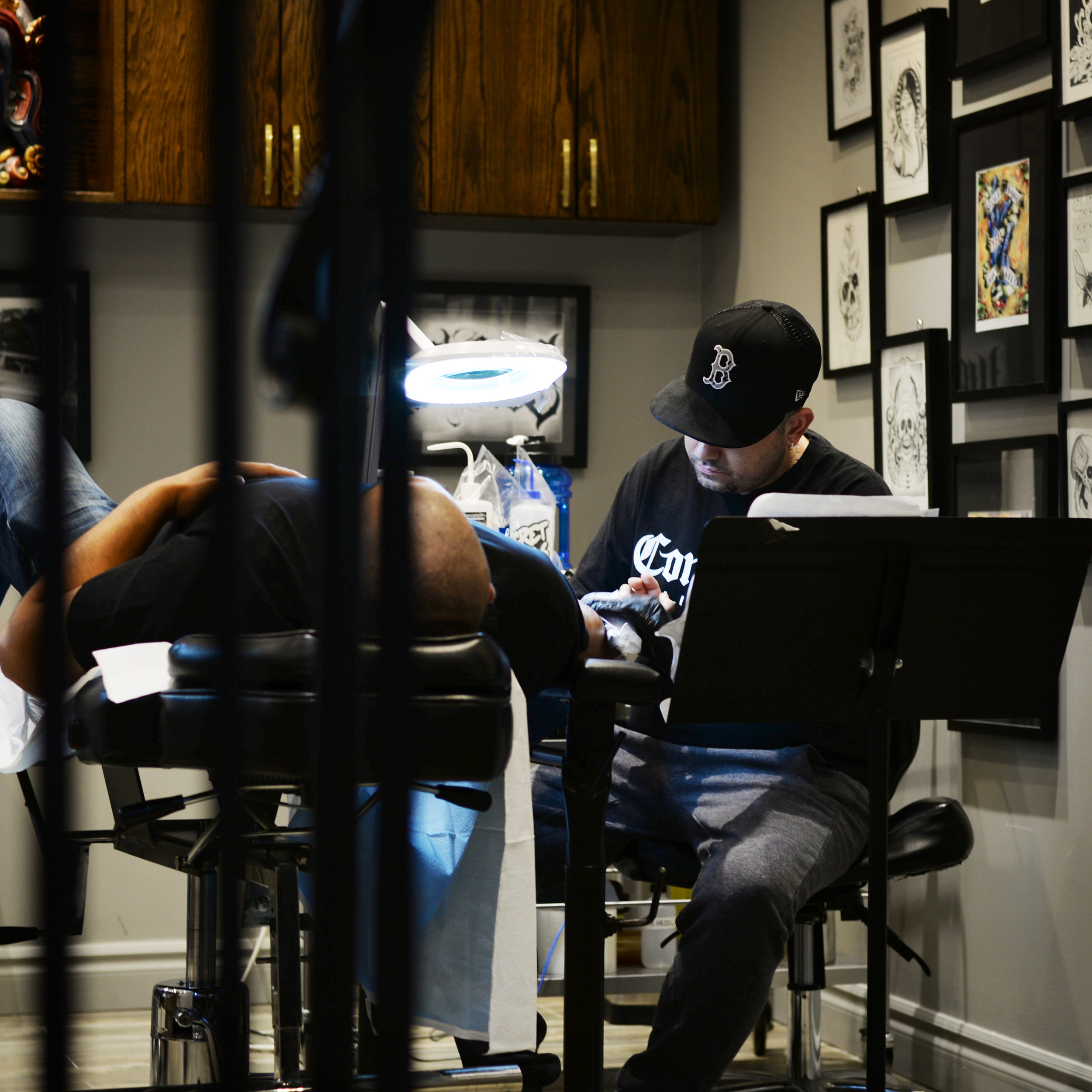The tattoo apprenticeship has been a sacred part of becoming a respected tattoo artist since the early days of tattooing. Part filter, part education, the ritual of proving one’s character under duress while learning the art of tattooing has long been regarded as essential to a tattoo artist’s final development as a craftsman.
Over the years, the importance of becoming an apprentice has been watered down and, amongst a sea of barely tattooed selfies proclaiming their apprenticeship status, has become a shadow of its former self.
Why? The relationship between mentor and student used to serve as a sacred bond. There was literally no other way to find the machines, pigments, and knowledge necessary to become a competent artist. Now, with the explosion of the internet, tattoo supplies and know-how are everywhere. However, what many aspiring tattoo artists do not understand is that there is a cloud of abstract skills that separates a real tattoo artist from one who’s not.
From resuscitating unconscious clients suffering from seizures, to removing drunk and belligerent assholes, to understanding punch dynamics of different machine setups, there is boundless knowledge to be absorbed. This depth of information is why there is zero success in ‘tattoo schools.’ The amount of understanding is immense, and can only be passed on in daily, intensive, one-on-one learning situations, much of which is only available through observation and deep immersion.
In addition, when you learn from a tattoo artist, you carry their name. This will open or shut doors for you throughout your entire career. This is a factor not to be taken lightly. When you earn an apprenticeship, you are choosing the overall foundation and direction of your future. The decision to apprentice under an artist is extremely important, but how do you know if you are apprenticing under a reputable tattoo artist?
• If a shop or artist has posted an advertisement or any other public call for apprentices, run the other way. Not only is this the epitome of disrespect to one of the pillars of tattooing, it’s also indicative of a couple of factors. First, if an artist is truly knowledgeable and has a proven record as a coach, they will not have to seek apprentices. They will have a constant stream of prospects in their vicinity. Second, it’s a clear indicator that the shop/artist is seeking to add another income stream to their stable, and nothing more. Mentoring an apprentice should be regarded as a sacrosanct action, not a financial decision.
• An important factor to consider is the experience level of the person you’re learning from. The standard accepted time spent in attaining an adequate level of proficiency for teaching is 10 years. This is a number that will be expected in anything from academia to many martial arts practices. In tattooing it is extremely important, because there are specific technical aspects that can only be truly understood through observing one’s own work going through an aging period of about a decade. Do not go through the grinder of an apprenticeship for someone who has not paid the dues of a decade in their craft.
• Another simple but obvious qualification would be the actual technical ability of the artist you are wanting to learn from. In other words, are they a competent and capable craftsman? Have they worked with other high-level practitioners? Have they worked in other recognized shops? What is their convention history? Is their work of an excellent and versatile quality?
So, amongst all these questions, you may be asking what the correct avenue for seeking an apprenticeship actually is. The time honoured and standard approach is this:
• Get tattooed by the artist. Adding value before trying to take any is a baseline standard to starting any kind of a relationship. In other words, give something before assuming you can take. Unless if you are an unusual and elite-level artist, there is virtually no reason a tattoo artist would want to go through the headache and sometimes heartache of passing on hard earned knowledge to a stranger walking in off the street.
• Don’t ever send emails requesting apprenticeship opportunities. Those go straight in the trashcan of a good tattoo artist, and will never be successful. Why should a tattoo artist go through the work of teaching somebody who doesn’t even want to put in the work of asking for it in person?
• Present yourself in an intelligent and professional manner. Be respectful and show your potential mentor you have the capability to carry on their LEGACY.
Then, if you have the street knowledge, you will find a way to present a portfolio of your art to your potential mentor. Be knowledgeable about the art and its styles and history. Be genuinely invested in your love for the craft; if you’re not, you shouldn’t be tattooing anyway.
